Nowadays love is a matter of chance, matrimony a matter of money and divorce a matter of course
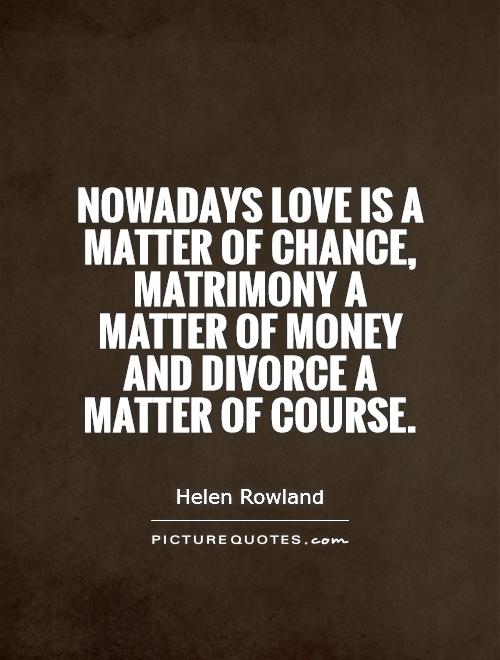
Nowadays love is a matter of chance, matrimony a matter of money and divorce a matter of course
Helen Rowland, a popular American writer and humorist in the early 20th century, was known for her witty and insightful commentary on relationships, love, and marriage. One of her most famous quotes, "Nowadays love is a matter of chance, matrimony a matter of money and divorce a matter of course," perfectly encapsulates the changing dynamics of romantic relationships during her time, and continues to resonate in today's society.In Rowland's era, the concept of love was often seen as a game of chance, with individuals relying on fate or luck to find their perfect match. This idea was further complicated by societal expectations and pressures, such as the importance of financial stability and social status in choosing a partner. As a result, many marriages were based on practical considerations rather than genuine love and compatibility.
The rise of consumerism and materialism in the early 20th century also played a significant role in shaping the institution of marriage. With the increasing emphasis on wealth and possessions, many people viewed matrimony as a transactional arrangement, where financial security and social standing were prioritized over emotional connection and mutual respect. This shift in values led to a commodification of relationships, where love was often overshadowed by material considerations.
Furthermore, the rising divorce rates during Rowland's time reflected the growing disillusionment with traditional notions of marriage and family. As societal norms evolved and women gained more independence and autonomy, many individuals felt empowered to leave unhappy or unfulfilling relationships. Divorce became more socially acceptable and accessible, leading to a normalization of the process and a decrease in stigma surrounding failed marriages.




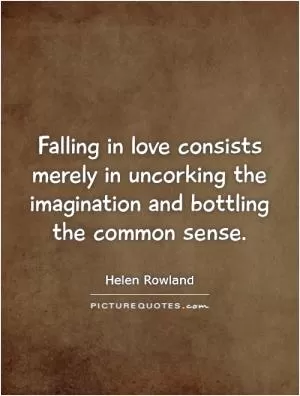

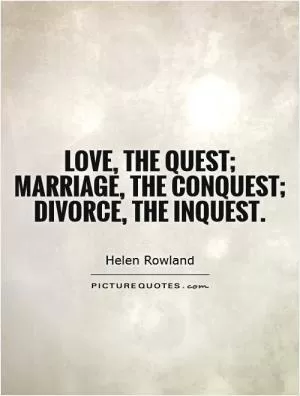
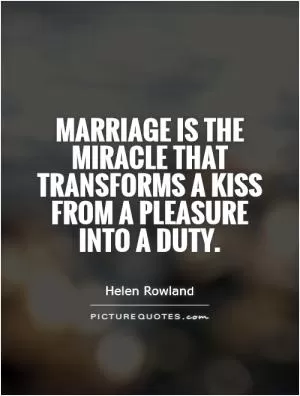
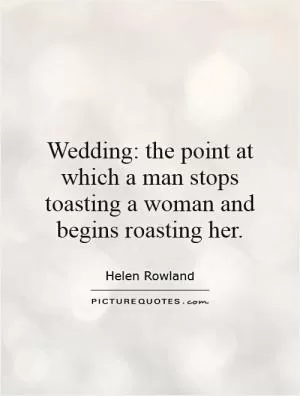

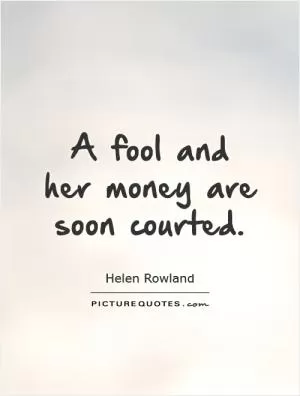
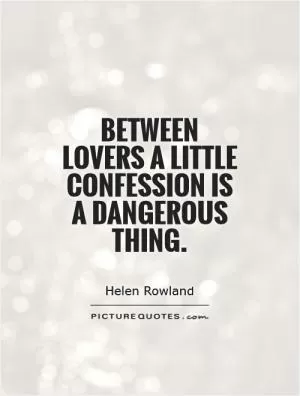
 Friendship Quotes
Friendship Quotes Love Quotes
Love Quotes Life Quotes
Life Quotes Funny Quotes
Funny Quotes Motivational Quotes
Motivational Quotes Inspirational Quotes
Inspirational Quotes